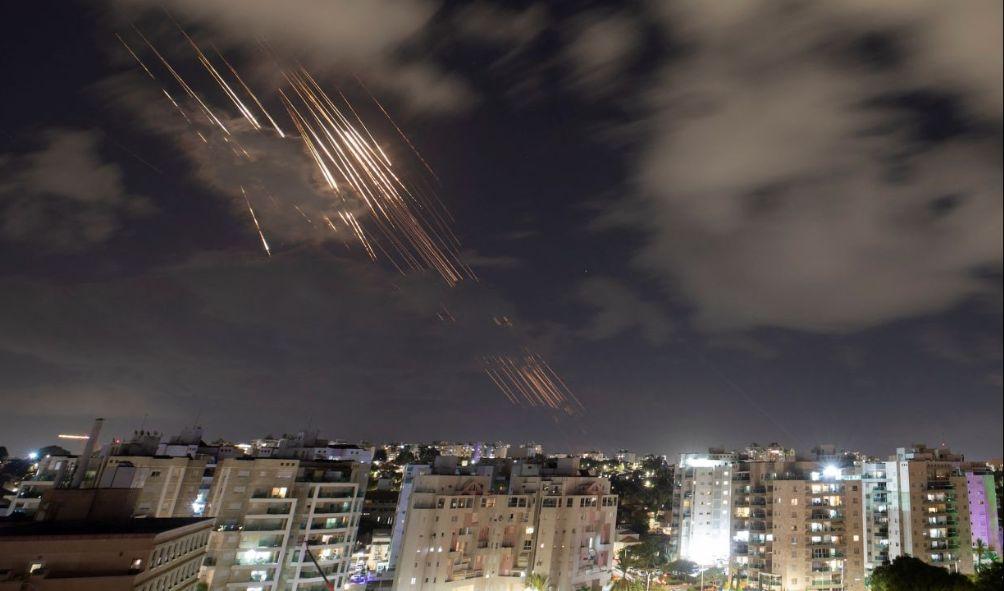Iran’s Missile Attack Against Israel: What We Know and What Comes Next
Iran has launched a historic attack on Israel, unleashing a wave of missiles as tensions in the region escalate amid weeks of heightened violence.
On Tuesday, the Islamic Revolutionary Guard Corps (IRGC) announced that it targeted Israel with missiles in retaliation for lethal Israeli strikes on civilians in Gaza and Lebanon, as well as the assassinations of key leaders from the IRGC, Hamas, and Hezbollah.
Alarms echoed throughout Israel on Tuesday evening as missiles struck major cities and towns.
Israel, along with its primary ally, the United States, reported that their militaries collaborated to intercept most of the nearly 200 missiles launched by Iran.
The Israeli military stated that only a handful of missiles impacted central and southern Israel, with two injuries reported due to falling debris in the Tel Aviv region, according to Israel’s emergency services.
Here’s what we know regarding the assault, the broader context, and potential future developments.
What transpired?
The specifics of the Iranian operation are still unclear, but the IRGC indicated that the missiles targeted “critical military and security sites” in Israel.
They later specified that their attack focused on three military installations in the Tel Aviv vicinity.
The operation included a significant cyberattack and marked the debut of Iran’s new Fatah hypersonic ballistic missiles, according to state media reports.
The Israeli military claimed to have intercepted “a substantial number” of the 180 ballistic missiles launched by Iran, with only “isolated” strikes reported in central and southern regions.
The IRGC asserted that 90% of the projectiles successfully hit their intended targets.
US National Security Adviser Jake Sullivan noted that American military forces “coordinated closely” with Israeli forces to neutralize the missiles.
“US naval destroyers joined Israeli air defense units to launch interceptors against the incoming missiles,” Sullivan explained to the press at the White House.
He confirmed that no fatalities occurred in Israel, stating, “Based on what we know at this point, this attack seems to have been thwarted and ineffective.”
What provoked the attack?
The IRGC clarified that the missile assault was in direct retaliation for the assassination of Hassan Nasrallah, the leader of Hezbollah, and IRGC commander Abbas Nilforoushan in Beirut the previous week, along with the killing of Hamas leader Ismail Haniyeh in Tehran in July.
Analysts have cautioned throughout the past year that the Middle East is on the verge of regional warfare due to Israel’s military actions in the Gaza Strip, which have resulted in over 41,000 Palestinian deaths since October 2023.
Shortly after the Gaza conflict began, Hezbollah commenced firing rockets into northern Israel, asserting its intent to aid Palestinians in the besieged region.
Since then, the Israeli military has engaged in cross-border exchanges with Hezbollah, displacing tens of thousands on both sides.
Over the past month, Israel has intensified its attacks on Lebanon, targeting areas in Beirut and increasing fears of a full-scale war.
What happens next?
Israeli military spokesperson Daniel Hagari emphasized that Israel is “fully prepared to defend and retaliate” against the Iranian assault, underlining that such retaliation would occur “promptly.”
Sullivan, the White House adviser, warned that the Biden administration “has made it clear there will be consequences—severe consequences—for this Iranian attack,” and the US will collaborate with Israel to ensure this. Iran has cautioned Israel against retaliating, threatening to launch further missile strikes if it does.
Raed Jarrar, advocacy director at the US think tank DAWN, told Al Jazeera that the Middle East is now embroiled in “a full-scale regional war” that will not cease without a shift in US policy.
“This will not stop until the United States declares it will not supply additional weapons to Israel and will cease funding Israeli transgressions,” he asserted.
Omar Rahman, a fellow at the Middle East Council on Global Affairs, remarked that “there is no doubt” Israel will respond. “We’re heading towards a cycle of retaliation that could escalate into a larger conflict,” he stated to Al Jazeera.
Rahman added that Israel “has been attempting to provoke this war” with its actions in recent months.
“Israel possesses immense destructive capability, as evidenced in Lebanon. While Iran seems to be attempting to avoid widespread conflict, it is increasingly moving towards a confrontation with Israel.”
Iran’s Missile Attack Against Israel: What We Know and What Comes Next
